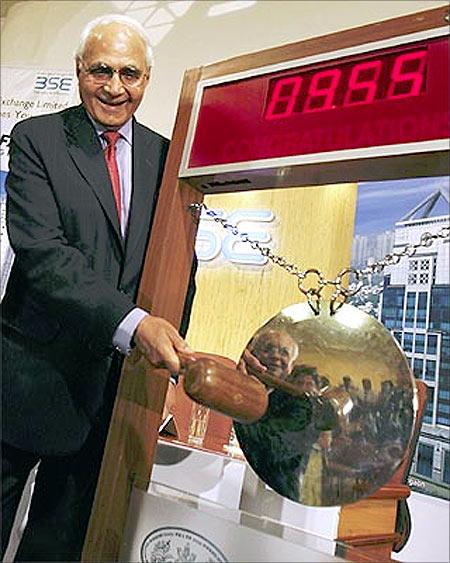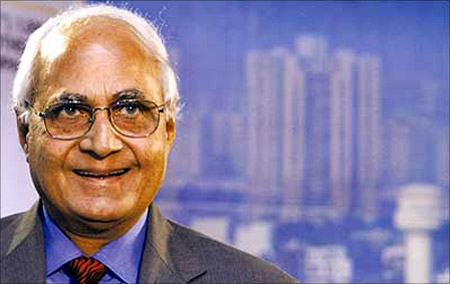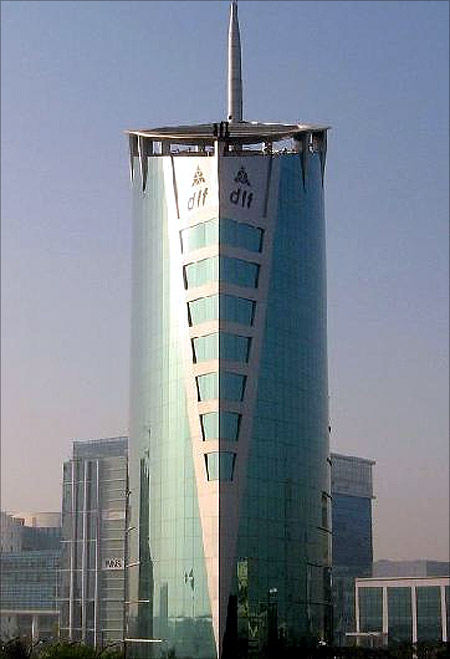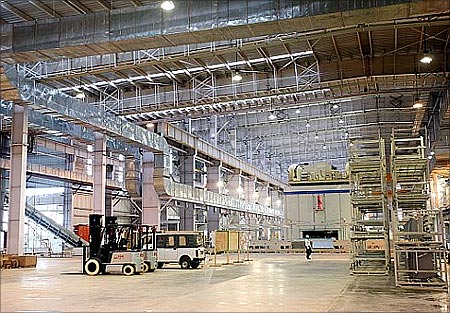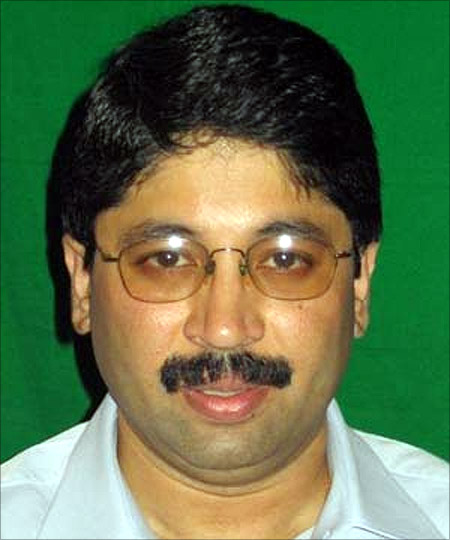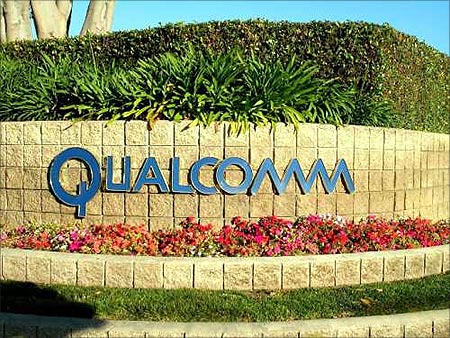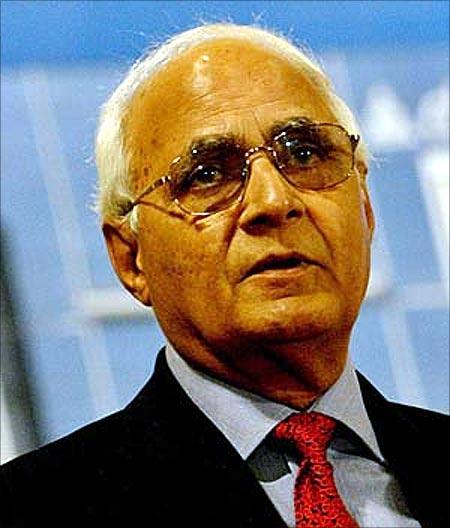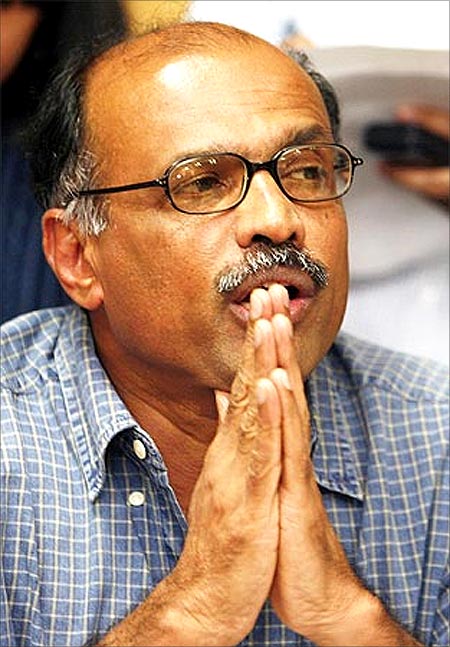 | « Back to article | Print this article |
How politics continues to rule business in India
K P Singh of DLF has written his memoirs (with the help of two journalists).
An instructive chapter deals with how Bansi Lal, thrice chief minister of Haryana, carried on a vendetta against DLF - changing rules, cancelling licences, conducting raids, sending in bulldozers, ordering arrests.
It is an extraordinary tale of how a powerful state politician could do anything when he set out to destroy a business; neither laws, rules, officials nor fellow-politicians could stand in his way.
Click NEXT to read more...
How politics continues to rule business in India
Not even intervention by the then prime minister, Rajiv Gandhi.
If you go by K P Singh's story, it all started with the chief minister being insulted by an inebriated guest at a dinner in the Singh household, to which Bansi Lal had invited himself.
The story belongs to the 1970s and 1980s, when businessmen were at the mercy of the licence-permit raj system, and the whimsical interpretation of complicated rules; and hence obliged at all times to bow and scrape before politicians and officials in a unique feudal-socialist nightmare.
Click NEXT to read more...
How politics continues to rule business in India
K P Singh also describes how H P Nanda of Escorts was deliberately humiliated by Bansi Lal when Nanda declined to make a political contribution on the ground that Escorts' business partner Ford had rules that forbade such payments.
This is not to suggest that businessmen are lily-white; investors who got the rough end of DLF's stick in the run-up to its public share issue will have their own feelings about the company.
Click NEXT to read more...
How politics continues to rule business in India
But the question is worth asking: how different is India today, 20 years after reforms began? The unhappy answer must be, not very.
Consider how Tata Motors was hounded out of Singur; and the experience of sugar mill owners in Uttar Pradesh, who are the victims of political extortion year in and year out, sometimes under threat of arrest, Bansi Lal-style.
The head of a southern business house confided some time ago how the powers that be in his state wanted a free 30 per cent stake in a new venture that the group wanted to set up.
Click NEXT to read more...
How politics continues to rule business in India
That story found an echo recently in Dayanidhi Maran's alleged arm-twisting of C Sivasankaran to do a forced sale of Aircel to Maxis.
Tata insiders talk of a similar experience when it came to the clearance of one of their projects. Tata complained about the attempted extortion to all and sundry, going all the way to the top.
But the story was to be a repeat of K P Singh's experience with Rajiv Gandhi: no one could or would do anything to help.
Click NEXT to read more...
How politics continues to rule business in India
In Delhi, Qualcomm might feel it is in K P Singh's shoes today.
The US giant has paid a billion dollars after winning a bid to start a mobile telecom business, but reports said recently that it was in danger of losing its money and its licence because of the infringement of an unstated technicality.
And the talk in Mumbai's business circles is of tax officials slapping companies with demands running into tens of thousands of crores, on the basis of hypothetical calculations of interest rate differentials.
Click NEXT to read more...
How politics continues to rule business in India
The head of a global advisory firm in the US said in a recent conversation that India was the most unpredictable territory because nowhere else in the world did you have the same combination of complicated rules and enforcement with a random harshness.
Most businessmen prefer to not talk of these things. K P Singh may have been emboldened because both Bansi Lal and his son are dead, so there is no danger of retribution at the next turn of the political roulette wheel.
Click NEXT to read more...
How politics continues to rule business in India
Cases like Capt Gopinath, then of Deccan Aviation, accusing the sitting minister of civil aviation of being partial to one particular airline are very rare.
But that is not to say that such instances themselves are rare. What that tells us is that we are a long way from being a rules-based market economy.
